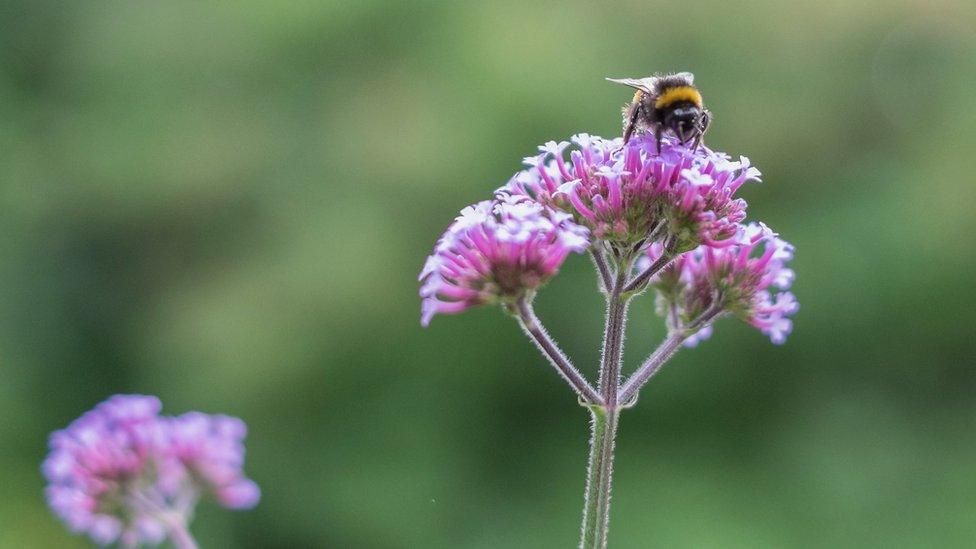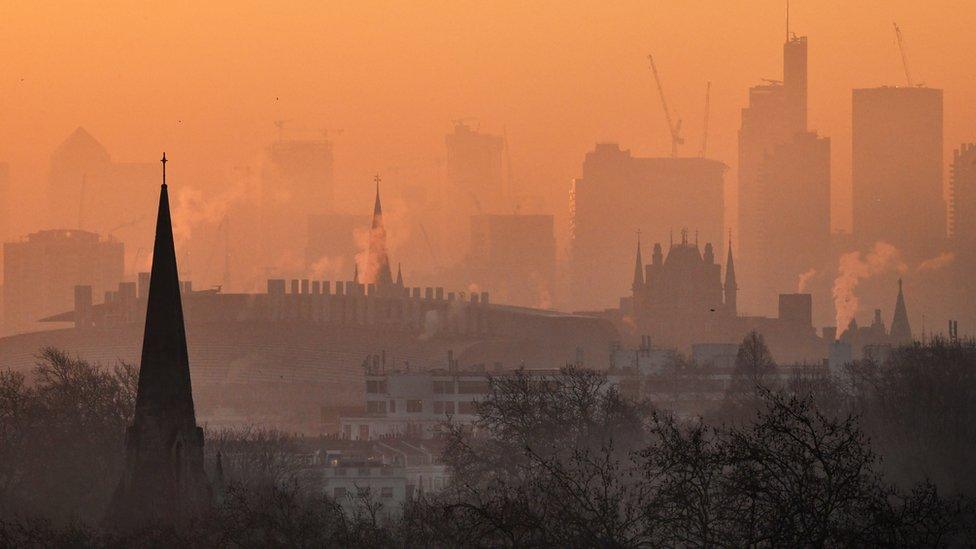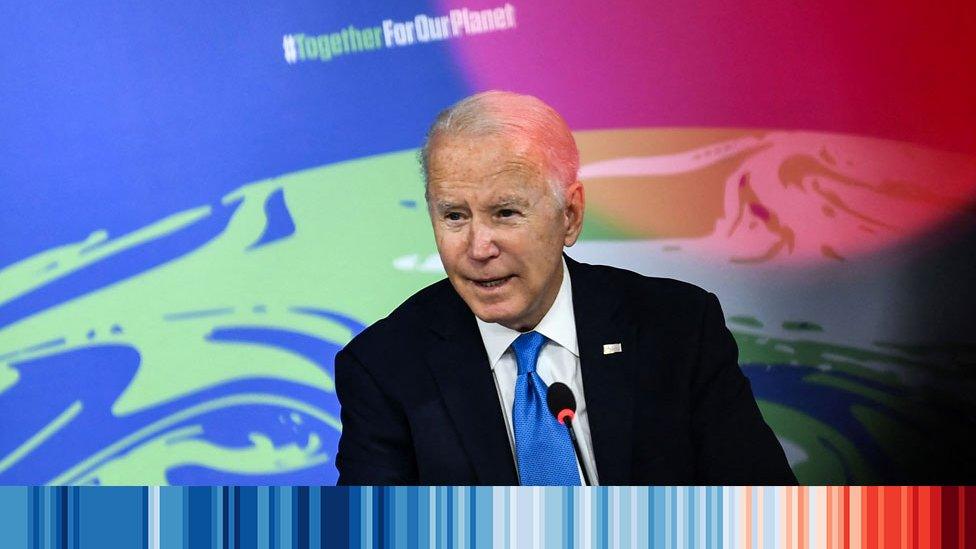Environment Bill: Ministers in tight spot ahead of COP26 climate summit
- Published

The UK is under pressure to deliver on climate pledges ahead of hosting COP 26
The House of Lords has put the government, and in particular new Housing Secretary Michael Gove, in a tight spot ahead of the COP 26 UN climate conference in Glasgow in November.
Peers have defeated the government 14 times to rewrite important sections of its landmark Environment Bill.
Ministers will now have to decide whether to accept the changes, or spend the weeks before the gathering voting them down in the Commons.
Over the past fortnight, a cross-party alliance of peers - Labour, Lib Dems, crossbenchers and some Conservatives - has pushed through some significant changes to the legislation.
These include a call to declare a climate change and biodiversity emergency, seeking to eliminate sewage discharges into rivers, protecting habitats, soil quality and ancient woodlands, and raising air quality.
They also want to ensure pesticides are assessed for their long-term impact on honeybees and pollinating insects, and beefing up the powers and independence of the new watchdog body, the Office for Environmental Protection (OEP).
That last was a cross-party amendment, led by the ecologist and crossbench peer Lord Krebs, who argued the OEP as described in the bill would be a "toothless watchdog".
Labour's lead on the bill, Baroness Jones, identifies the boost peers gave to its independence as the key change, from which much else would flow.
Green peer Natalie Bennett argues it would undermine the UK's chairing of COP 26, if the government spends the weeks before start of the conference whipping its MPs to reverse those measures.

Peers are concerned about the impact of pesticides on insects such as bees
New laws have to be approved by both the Lords and the Commons, so when peers make changes to a bill that MPs have already passed - as they have with the Environment Bill - those changes then have to be approved or rejected by MPs.
Sometimes, proposed laws can bounce between the two houses of Parliament, as a change is struck down by MPs, but peers then try to offer an alternative.
Several government departments are involved in the Environment Bill, but I suspect the key decision-maker will be Mr Gove, who will have to decide whether the protections written into the bill by peers undermine the government's drive to build new housing.
Zac Goldsmith, the environment minister piloting the bill through the Lords, has already dismissed reports the changes could delay the legislation until after COP 26 as "mischievous and untrue".
The timing of COP 26 will certainly magnify the embarrassment factor, and the political price to be paid, if the decision is to reverse some, or all of the amendments.

New air quality targets have proved a contentious part of the bill
Lib Dem peer Lord Teverson, who pushed through an amendment to declare a climate and biodiversity emergency, argues that it will send the wrong signals to international partners, just when the government is attempting to sign them up to measures to limit climate change.
And Baroness Bennett predicted resistance from civil society groups, as well as international accusations that the UK was failing to live up to its responsibilities as chair of COP 26.
Conservative peer Lord Randall, a former deputy chief whip in the Commons, agreed that Conservative MPs and the government at large would come under pressure.
He said he thought ministers might offer concessions on issues like sewage pollution of rivers, following a critical select committee report, and on habitat protection - an issue where the prime minister's father Stanley Johnson was instrumental in writing the EU's legislation as an MEP.
It's a view shared by Labour's Baroness Jones, who believes peers may ultimately make many of the changes they've made stick.
The bill will probably go back to the Commons in the week beginning 18 October - giving ministers some time to consider their response.
Related topics
- Published15 November 2021

